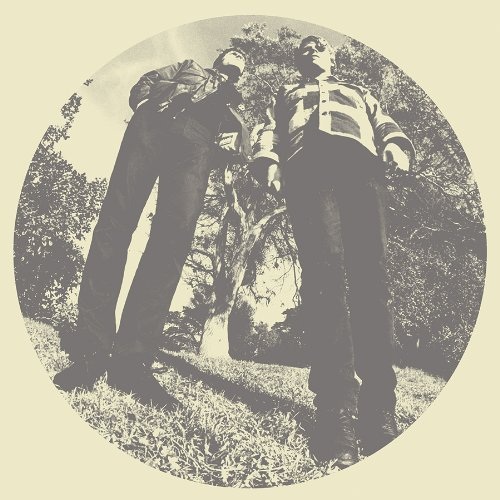It’s amazing to me that more outlets haven’t posted with incredulity about the combined output Ty Segall and White Fence have planned for 2012. Between the two of them, five full-length albums will be released across a time period of less than twelve months. Five albums. It would be reasonable to think that such ambitious plans might result in undercooked albums, but the first effort in this series, White Fence’s Family Perfume Vol. 1, proved to be just as interesting as his previously released albums given the benefit of a more typical album release cycle. So here we are with the second release from the pair, the only collaborative effort amongst the five, and though it is a bit shorter, weighing in at only eight tracks and 28 minutes, it is a series of songs that all land in the upper echelon of either’s recorded output to date.
In many collaborative efforts, songs take the course of resembling either one songwriter or the other, but the tracks compiled on Hair certainly don’t resemble this usual mechanic. With Ty Segall taking on drums and rhythm guitar and Tim Presley (the man behind the White Fence moniker) taking on bass and lead guitar, they’ve constructed what seems to be a truly collaborative effort. If Presley’s usual work represents the sound of the early sixties and Segall’s usual work represents the late 60s, then this collaborative effort splits the difference. Tracks like the lead single “I Am Not A Game” or “Crybaby,” those reliant heavily on vocal takes by Presley and Segall respectively, seem to lie directly in the influence of the mid-sixties, taking the early bits of psychedelic rock and condensing them into three minute proto-punk songs that are still dependent on the cheery melodic focus of bands like Love.
If nothing else, these tracks seem to hint at how powerful this material will be in a live setting. Already we’ve been treated to hints of the jammy nature of their live set in their Room 205 videos, and though the flailing guitar solos are mostly excised in these studio recordings, the energy behind them is still present. Though no one would ever accuse either of these guys of overproducing on their own, this collaboration feels even looser than usual. It’s hard to speculate whether or not these songs were in actuality the product of improvisation; they certainly seem that way. Closer “Tongues” is the longest track on the album, and as a consequence seems to most clearly represent this compositional method. Built around a stunning Presley vocal and the Nuggets-y guitar work typical of this album as a whole, it’s a psychedelic groove that, while seeming locked in, threatens to go off the rails during the needly solo. It’s nothing particularly innovative, but everything here is so well-written and so full of life that none of that really matters. The power behind songs like “Scissor People” is so apparent that innovation doesn’t really need to be a part of the conversation.
Though some will chide the album for being so firmly rooted in nostalgia, there’s just too much to like here to make any real criticism out of that. Sure, the Stones may have done it before. Sure, Nuggets may have compiled a ton of similar stuff nearly forty-something years ago. None of that really matters. Two of the more prolific musicians of our time have come together to put out eight interesting tracks. That much should be enough.

